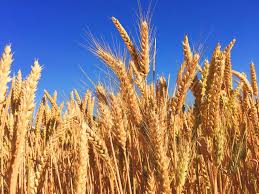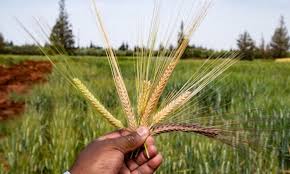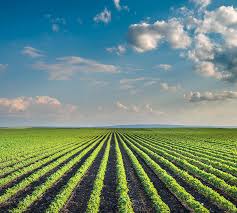![]()
If you’ve landed on this article page, you’re probably searching for a
good business idea—an idea that’s light on the pocket but heavy on
returns, promising both a fulfilling journey and potential profit.
|
How To Start A Lucrative Barley Farming Business In Nigeria
The Barley crop is the fourth most demanded cereal crop in the
world because of its wide use in the areas of bread production,
malt, and most importantly beer and whiskey in Nigeria,
Ethiopia, South Africa, and many other places around the world.
Barley (Hordeum vulgare) is a cereal crop that is widely
cultivated for human consumption and animal feed worldwide.
Although barley is primarily grown in temperate regions, it can
also be cultivated in Nigeria and other parts of Africa with
suitable climatic conditions. According to the Food and
Agricultural Organization (FAO), Nigeria produced approximately
400,000 tons of barley in 2019, making it one of the leading
barley producers in Africa.
Barley farming in Nigeria and Africa presents enormous economic
opportunities for farmers, entrepreneurs, and the nation at
large. The crop is a source of income and nutrition for farmers,
while its commercial potential includes the production of malt
for the brewing industry, food processing, and animal feed. With
increasing demand for barley products, there is a need for
farmers to increase their production capacity and improve the
quality of their yields.
Furthermore, barley farming in Nigeria and Africa presents an
opportunity for export to other countries. For instance, the
European Union imports large quantities of barley from outside
its region to meet its demand for animal feed and brewing. By
tapping into this market, Nigerian and African barley farmers
can increase their revenue and contribute to the nation’s
foreign exchange earnings.
Research has shown that barley farming can be a profitable
venture in Nigeria and Africa. The crop has a relatively short
growing season of about 4-6 months, which makes it a good option
for rotation with other crops. It is also relatively
drought-tolerant, which is important in areas with erratic
rainfall patterns. The average yield for barley farming in
Nigeria is about 1.5-2 tons per hectare, while the global
average yield is about 3-4 tons per hectare.
Business Opportunities In Barley Farming In Nigeria and Africa
Production and sales of barley seeds: As a barley farmer in
Nigeria or Africa, you can sell your seeds to other farmers who
want to cultivate the crop. You can also package and sell the
seeds to other countries.
Malting industry: Barley is an essential ingredient in the
production of beer, malt drinks, and other alcoholic beverages.
By cultivating barley, you can supply the malt industry with raw
materials.
Livestock feed production: The by-product of barley, known as
barley straw or hay, can be used as animal feed. You can
cultivate barley for animal feed production.
Flour production: Barley flour is used in the production of
bread, biscuits, and other baked goods. You can process the
barley into flour and sell it to bakeries or other food
companies.
Health food production: Barley is a healthy food that is used in
the production of various health foods like barley flakes,
granola bars, and other nutritious snacks. You can cultivate
barley for the production of these products.
Barley tea production: Barley tea is a popular drink in some
countries. You can cultivate barley for the production of this
tea and sell it to tea processing companies.
Barley-based beverages: Barley is used in the production of
non-alcoholic drinks like barley water and barley-based energy
drinks. You can cultivate barley for the production of these
beverages.
Barley-based baby food production: Barley can be used in the
production of baby food. As a barley farmer, you can supply
barley to baby food companies.
Beauty products: Barley extract is used in the production of
beauty products like creams, lotions, and shampoos. You can
cultivate barley and sell the extract to beauty product
manufacturers.
Barley straw for craft production: Barley straw is used in the
production of baskets, mats, and other craft items. You can sell
barley straw to craft producers.
Barley-based health supplements: Barley is a rich source of
vitamins, minerals, and antioxidants. You can cultivate barley
and sell it to companies that produce health supplements.
Barley-based animal supplements: Barley is also used as a
supplement for livestock. You can cultivate barley and sell it
to companies that produce animal supplements.
Organic barley farming: With the growing demand for organic
foods, you can cultivate barley using organic farming methods
and sell the organic barley to consumers or companies that
produce organic products.
Barley-based cosmetics: Barley is used in the production of
cosmetics like facial masks and scrubs. You can cultivate barley
and sell it to cosmetics companies.
Barley export: As a barley farmer in Nigeria or Africa, you can
export your barley to other countries that have a high demand
for the crop. You can export both raw barley and processed
barley products.
How To Start Barley Farming In Nigeria and Africa: Step-By-Step
Guide
Starting a successful barley farming business in Nigeria and
Africa requires careful planning, adequate resources, and
knowledge of the agricultural industry. Below is a step-by-step
guide to help you get started:
Conduct Research: Conduct thorough research about the market
demand for barley and identify the best locations for growing
barley.
Develop a Business Plan: Develop a business plan that outlines
your goals, strategies, marketing plans, financial projections,
and other important details.
Acquire Land: Acquire or lease suitable land for growing barley.
The land should have good soil quality, adequate water supply,
and good drainage.
Purchase Equipment: Purchase the necessary farming equipment and
tools, including plows, tractors, harvesters, and irrigation
systems.
Source for Seed: Source high-quality barley seeds from reputable
suppliers or research institutes.
Plant Barley: Plant the barley seeds in the prepared land during
the appropriate planting season.
Monitor Growth: Monitor the growth and health of the barley crop
regularly and make necessary adjustments to optimize growth.
Harvest Barley: Harvest the barley crop during the appropriate
harvest season using appropriate equipment and techniques.
Process Barley: Process the harvested barley into the desired
end product, such as malted barley, barley flour, or barley for
animal feed.
Market Your Product: Develop a marketing plan to sell your
barley product to local buyers, breweries, food processing
companies, or animal feed manufacturers.
Target Market For The Barley Farming Business In Nigeria or
Africa
Breweries and Distilleries: The major market for barley in
Nigeria and Africa is the breweries and distilleries industry.
Barley is a key ingredient in the production of beer, whiskey,
and other alcoholic beverages. The demand for these products is
high in Nigeria and Africa, as the consumption of alcohol is a
significant part of the culture in these regions.
Livestock Feed Production: Barley is also used in the production
of animal feed, particularly for livestock such as cattle,
sheep, and pigs. The demand for livestock feed in Nigeria and
Africa is high, as animal husbandry is a significant source of
livelihood for many people.
Food Processing Industry: The food processing industry in
Nigeria and Africa is another potential market for barley.
Barley can be used to produce flour, which is used in the
production of various food products such as bread, cakes, and
biscuits. The demand for these products is high in Nigeria and
Africa, as they are staple foods in many cultures.
Export Market: There is also a potential market for barley in
the export market. Nigeria and Africa can export barley to other
countries, particularly in Europe and Asia, where there is a
high demand for the product.
Barley is rich in fiber, protein, vitamins, and minerals, making
it a highly nutritious grain. It is commonly used for making
malted beverages, such as beer and malt drinks. Barley grain can
also be used for animal feed, especially for poultry and pigs.
The straw and other byproducts of barley farming can be used as
livestock feed or for soil improvement.
Overall, barley farming presents a significant opportunity for
farmers in Nigeria and Africa, particularly in areas with
favorable climatic and soil conditions. With proper management
practices and access to markets, barley farming can contribute
to the economic growth and development of the region.
By following these steps, you can start a successful barley
farming business in Nigeria and Africa. However, it is important
to note that barley farming can be challenging and requires
significant investment and management skills. It is important to
seek advice from experts and collaborate with other barley
farmers to maximize your chances of success.
Get our Practical guide on Barley Farming Business in Nigeria.
In this information, you will learn the best way to market and
profit from Barley Farming Business, you will learn the exact
costs of the resources and equipment you need for your Barley
Farming Business.
The body of this work is formed from consulting experienced and
relevant people running the Barley Farming Business, to get
first-hand information about the success secrets and marketing
strategies deployed to achieve business success
|







